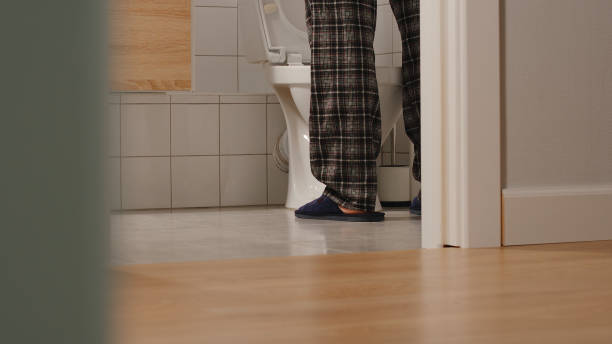Health Conditions
Simple Tips to Prevent UTIs in Seniors
Given seniors’ higher susceptibility to urinary tract infections (UTIs), preventing them is an important part of preserving their general health and well-being. UTIs can cause major problems in older persons, such as confusion, falls, and even sepsis, making prevention methods critical. Seniors, on the other hand, may be more susceptible to UTIs due to a variety of variables including weakening immune systems, urine retention, and underlying health issues. In this article, we look at successful tactics and practical advice for preventing UTIs in seniors. Understanding and adopting preventive strategies suited to the specific needs of older persons, such as lifestyle changes and hydration practices, as well as cleanliness habits and medicinal interventions, can dramatically lower the risk of UTIs and enhance their quality of life.

Understanding UTIs in Seniors
Urinary tract infections (UTIs) are a prevalent health issue among elderly people. They arise when bacteria enter the urinary tract, resulting in irritation and infection. UTIs are unpleasant and uncomfortable, and they can lead to significant problems if not treated.
Risk Factors for UTIs in Older Adults
Several factors contribute to the increased incidence of UTIs among older persons, including:
- Weaker immune system: As people get older, their immune systems weaken, making them more susceptible to infections.
- Reduced bladder capacity: As the bladder muscles weaken, they may be unable to store as much urine, resulting in more frequent urination and a higher risk of UTI.
- Urine incontinence: Many older persons suffer from urine incontinence, which increases the risk of UTIs.
- Catheter use: Older persons who undergo catheterization are more likely to acquire UTIs.
Common Symptoms and Complications
UTIs in older persons can manifest as a variety of symptoms, including:
- Urinary pain or burn
- Frequent urination
- Urgent need to urinate.
- Urine that is cloudy or has a strong smell
- Blood in the Urine
- Pain or pressure in the lower stomach or back
UTIs can cause more serious problems, including kidney infection, sepsis, disorientation, fever, delirium, and cognitive impairment. If you experience any of these symptoms, you should seek medical attention.
To avoid UTIs in older persons, practice proper hygiene, consume enough fluids, and empty the bladder on a regular basis. It is also vital to avoid irritants like caffeine, alcohol, and spicy meals, which can worsen UTI symptoms. Antibiotics may be useful in some situations.

Preventative Strategies for UTIs
UTIs are a prevalent concern among seniors, but there are numerous ways to prevent them. These strategies fall into three categories: hygiene and personal care, lifestyle and nutritional changes, and proper catheter use.
Hygiene and Personal Care
One of the most important things seniors can do to avoid UTIs is to maintain proper hygiene. This includes washing your genitals with warm water and mild soap, wiping from front to back after using the restroom, and wearing clean, dry underwear. Seniors should also avoid using harsh soaps or douches since they might alter the normal balance of germs in the vagina, increasing the risk of infection.
Lifestyle and Dietary Adjustments
Seniors can also make lifestyle and nutritional changes to lower their risk of UTIs. Drinking enough of fluids, particularly water, can help remove bacteria from the urinary tract. Cranberry juice and supplements may also be effective since they contain chemicals that prevent bacteria from attaching to the walls of the urinary system.
Seniors should also consider estrogen medication, as low estrogen levels can cause weakening of the vaginal walls and an increased risk of infection. Probiotics may also be beneficial since they promote a healthy balance of bacteria in the gut and vagina.
Proper Use of Catheters
To avoid UTIs, seniors who require catheterization must use catheters properly. Catheters should only be inserted and removed by trained healthcare professionals, and seniors should follow all cleaning and care recommendations. Seniors should drink enough of water to help remove bacteria from their urinary tracts.
Seniors who follow these preventative methods can lower their risk of UTIs and preserve good urinary health.

Medical Interventions and Management
Antibiotics and Medication Use
When it comes to treating UTIs in seniors, antibiotics are typically the first line of defense. The antibiotic administered will be based on the type of bacteria causing the infection. Healthcare practitioners may also offer over-the-counter pain medicines to alleviate any discomfort caused by the illness.
It is vital to recognize that abuse of antibiotics can result in resistance. This means that the bacteria that cause UTIs may develop antibiotic resistance, making future treatment more difficult. To avoid this, seniors should only take antibiotics as prescribed by their doctor and never share them with others.
Regular Medical Assessments
Seniors who are prone to UTIs should schedule regular medical checkups with their doctor or urologist. During these exams, the healthcare provider may request a urine culture and sample to look for evidence of infection. They may also recommend lifestyle adjustments, such as drinking more fluids or maintaining good cleanliness, to help prevent future UTIs.
Regular medical exams can also help detect any underlying diseases that may be causing UTIs, such as bladder or kidney stones, diabetes, or an enlarged prostate. By addressing these underlying issues, elders can lower their risk of having UTIs in the future.
In conclusion, elders can avoid UTIs by taking antibiotics just as prescribed, getting frequent medical exams, and addressing any underlying issues that may be contributing to the UTIs. Seniors who work closely with their healthcare practitioner or urologist can effectively control and avoid UTIs.
Conclusion
Finally, implementing preventative steps to lower the incidence of urinary tract infections (UTIs) in seniors is critical for their overall health and well-being. Seniors can dramatically reduce their vulnerability to UTIs by changing their lifestyle to include being hydrated, practicing good hygiene, and seeking immediate medical assistance for underlying health concerns. Furthermore, caregivers and healthcare professionals play an important role in educating seniors about UTI prevention techniques and maintaining adherence to recommended practices. A proactive approach to prevention is critical since UTIs can cause major consequences in older persons, such as hospitalization and a lower quality of life. By focusing on preventive interventions suited to seniors’ specific requirements, we can help them live healthier, more satisfying lives while reducing the impact of UTIs on their overall health.
Trusted Health, Wellness, and Medical advice for your well-being


